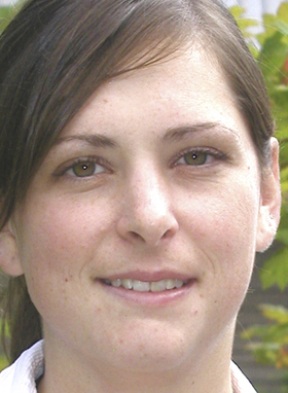Jenny Owens returns to Bainbridge for a global summit on ‘biodiversity.’
Fresh out of grad school, Bainbridge native Jenny Owens wanted a job in which she could travel the world and save it at the same time.
Owens, who grew up on Arrow Point and now lives in England, got her wish four months ago when she was hired by an international conservation group and rushed off to Borneo for a conference.
Other exotic places quickly crowded onto her likely travel list, with possible work in Africa and Asia. But her next destination was a bit unexpected.
“When they said ‘Bainbridge Island’ I was quite surprised,” Owens said, betraying the slight British accent she’s picked up after four years living in England. “I was hearing about all these biodiversity projects all over the world and then Bainbridge comes up. Especially in the context of other places like Qatar and Madagascar, Bainbridge just doesn’t fit the list of usual suspects.”
The island was one of six locations around the world selected by Forest Trends, an international conservation group, to participate in a pilot project aimed at preserving natural areas through voluntary trade-offs with land owners and businesses.
Known as the Business and Biodiversity Offsets Program, the project is tackling a natural gas plant in Qatar, a nickel mine in Madagascar, a platinum mine in South Africa a gold mine in Ghana and urban development issues on Bainbridge.
On Monday, representatives of some of these projects, along with over 80 business, policy and conservation leaders from over a dozen nations descended on Bainbridge for a week-long BBOP conference and work meeting.
The opening day saw presentations by an Australian mining company, a German banking firm and the Mexican government’s power administration.
Owens was there Monday taking it all in, participating in workshops on shoreline conservation, chatting with Sen. Phil Rockefeller and networking with leaders from Shell oil.
“Working with companies on social responsibility is really an emerging profession,” she said. “It’s going to become huge as people realize the responsibility companies have when doing these projects.”
Owens studied politics at Whitman College after graduating from Bainbridge High School in 1998.
She earned a master’s degree in social development from the University of Sussex last year and was hired four months ago by the London-based International Petroleum Industry Environmental Conservation Association.
As IPIECA’s social responsibility project manager, Owens works with oil companies to craft policies that protect the rights of workers and consults with communities to offset the impacts of refineries, pipelines and other oil industry projects.
Owens admits oil companies are not especially known for their environmental or human rights records. But Owens believes she can accomplish much working in the belly of the beast rather than fighting it from the outside.
“They have a bad reputation,” she said. “But they have the resources and the expertise to really affect social change.”
While Owens’ work is taking her far and wide, she said her return to Bainbridge this week was a welcome one. Bainbridge, she said, is what made her into the globe-trotting do-gooder she is today.
“A lot of people have a ‘save the world’ attitude on Bainbridge,” she said. “The education you get on Bainbridge prepares you to have an open mind, to be involved in the world and to improve social issues.”
Her family also played a key role, too. Owens’ father, Ed Owens, works at the Bainbridge office of a company that responds to oil spills. During summer breaks, Owens joined her father on business trips to Alaska’s North Slope and the high plains of Bolivia to work on spill prevention projects.
“That’s where I got my love for this kind of work,” she said.
While many of the other projects discussed at the BBOP conference dwarf ones proposed for Bainbridge, Owens believes the island is fertile ground for growing wider interest in incentive-based conservation strategies. The island is host to two city-led projects. One of them would, with the cooperation of nearby property owners, remove a bulkhead along Blakely Harbor and move a portion of Country Club Road away from the shore. Another would reduce the loss of habitat at a three-acre residential project along Wyatt Way.
“There’s such a liberal environment here,” Owens said. “I think a pilot project would be more accepted here than a place like Louisiana. I can see a lot of local support here because people are on the same track.”
The Bainbridge projects could provide a good test case for other communities to follow while helping the island deal with rapid growth.
“Bainbridge is developing so fast,” she said. “Every time I come home I see a new clear cut or an open field that now has a new (housing) complex. It’s changing so much, but it’s important to retain what’s unique and special about Bainbridge, like the forests and natural habitat.”
The world is already watching. Delegates from Mexico said at the conference that their cities and towns struggle to find funding to establish parks and other green spaces. The Bainbridge project, which encourages landowners to help fund conservation efforts, could prove to be a valuable model for Mexican cities, they said.
Owens agreed.
“It brings a global issue to the context of Bainbridge and highlights that conservation starts at home,” she said. “It’s easy to think of biodiversity in terms of rainforests and reefs, but really it’s important to start taking action…in the backyard, where there is motivation and resources and opportunity.
“And when these pilot projects are in progress…Bainbridge could be blueprint for similar, small-level biodiversity offset projects across the USA and the world.”
***************
BBOP-areebop
This story is the first of two parts. Saturday: How a Bainbridge Island project is a model for the Business and Biodiversity Offset Program.
The BBOP conference at IslandWood ends on Friday. For more information, call 842-2552 or see http://www.forest-trends.org/biodiversityoffsetprogram.



